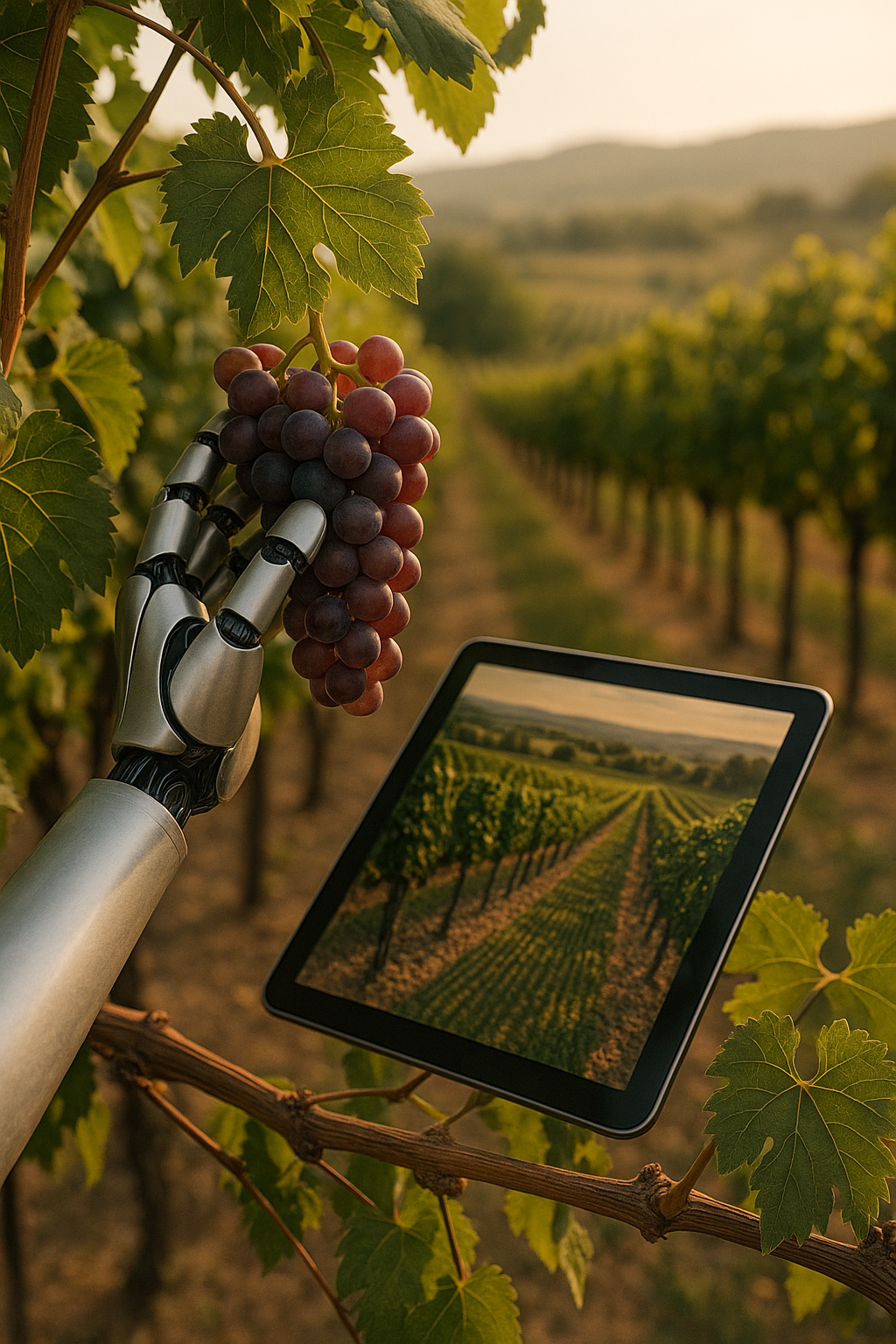
Hybrid grape AI boosts 2025 vineyard health
Share
The Rise of Hybrid Grape AI: Transforming Vineyard Management
As vineyards face the dual challenges of climate change and increasing consumer demand for sustainable practices, the emergence of hybrid grape AI is proving to be a game-changer. This innovative technology harnesses the power of artificial intelligence to analyze vast datasets, including weather patterns, soil conditions, and grape health, enabling vineyard managers to make informed decisions. By integrating hybrid grape AI into their operations, growers can optimize irrigation schedules, predict pest outbreaks, and tailor nutrient applications, ultimately enhancing grape quality and yield.
Moreover, the hybrid grape AI not only improves operational efficiency but also fosters a deeper understanding of the unique terroirs in which these grapes thrive. As a result, winemakers can craft wines that reflect the nuances of their environment, appealing to a market increasingly focused on authenticity and sustainability. This transformative approach not only secures the future of vineyards but also paves the way for a new era of wine production that aligns with both ecological and economic imperatives.
Enhancing Sustainability and Yield: The Benefits of AI in Viticulture
As vineyards grapple with the dual challenges of climate change and increasing consumer demand for sustainable practices, AI emerges as a transformative ally. By harnessing machine learning algorithms, vineyard managers can analyze vast datasets, predicting optimal planting times, irrigation needs, and pest control measures with remarkable accuracy. This data-driven approach not only enhances grape yield but also minimizes resource use, aligning with sustainable farming principles.
Moreover, AI-driven tools can monitor vine health in real-time, identifying stress factors such as water deficiency or disease before they escalate. This proactive management not only protects the crop but also reduces the reliance on chemical interventions, fostering a healthier ecosystem. As vineyards adopt these advanced technologies, they are not just boosting productivity; they are also setting a new standard for environmental stewardship in agriculture. The integration of AI in viticulture exemplifies how innovation can lead to both economic and ecological benefits, paving the way for a more resilient future in winemaking.
Looking Forward: The Future of AI-Driven Vineyards in 2025
As we look ahead to 2025, the integration of AI-driven technologies in vineyards is poised to revolutionize grape cultivation and wine production. With advancements in hybrid grape varieties, growers will increasingly rely on AI to analyze environmental data, optimize irrigation, and enhance pest management strategies. This fusion of biology and technology not only promises to boost vineyard health but also enables a more sustainable approach to viticulture.
AI algorithms will be able to predict weather patterns and soil conditions, allowing vintners to make informed decisions about planting schedules and crop rotations. Moreover, the emergence of precision agriculture tools will empower vineyard managers to tailor their practices to the specific needs of each grape variety, ensuring that every vine receives the ideal amount of nutrients and care.
By 2025, we can expect to see vineyards that are not just reactive but proactively managed, leading to higher yields and superior grape quality. This evolution will not only benefit producers but also enhance the overall wine experience for consumers, as the fruits of these innovations translate into richer, more complex wines that reflect the terroir with unprecedented clarity.
